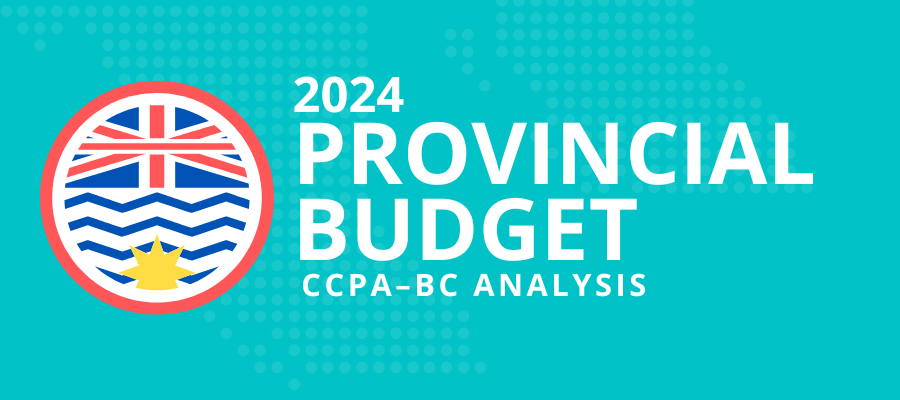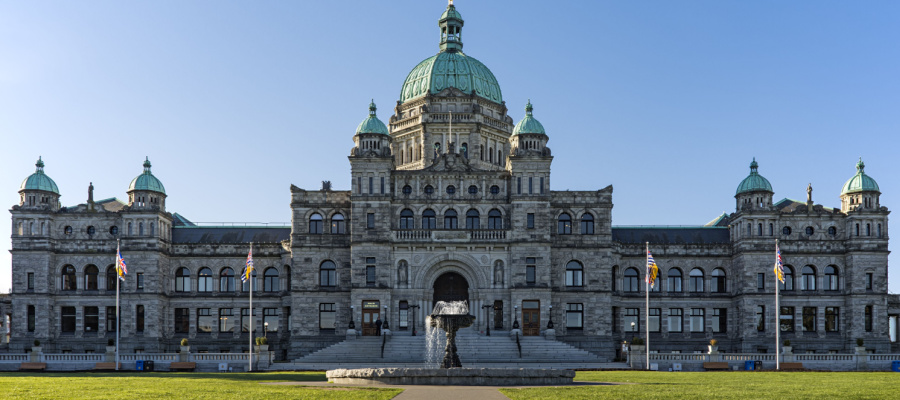BC’s new government is set to table its first provincial budget on Monday, September 11. While it is expected to be less comprehensive than a full budget (as almost half the year has already passed), the investments made or missing from it will reveal a lot about this government’s priorities.
The agreement signed by BC NDP and the BC Green Party that outlines their shared policy agenda is impressive and hopeful; we hope next week’s budget will be as well. Here is our take on 9 key areas where we expect to see action.
1. Build affordable housing
Buying a home is well out of reach for the vast majority of households in Metro Vancouver (and many other parts of the province), while ultra-low vacancy rates have made conditions worse for renters. In spite of a construction boom, new supply in the form of luxury investments for the super-rich is not what’s needed. Put simply, we need the BC government to step in and build new, dedicated affordable housing stock. The NDP’s election promise was for 11,400 new “rental, non-profit, co-op and owner-purchase” units per year for the next decade, ranging from supported social housing to market rentals.
2. Invest in public transportation
To keep BC moving, major new transportation investments are needed, in particular for Metro Vancouver. The Mayors’ Council on Regional Transportation has a $7.5 billion Ten-Year Plan to keep up with population growth, build a new Pattullo bridge and add substantial new transit capacity, including a Broadway subway in Vancouver and light-rail in Surrey. The NDP promised to fund 40% of capital costs for the plan. In addition, the budget must account for the loss of revenues due to the elimination of tolls on the Port Mann and Golden Ears bridges.
3. Get serious about poverty reduction
In its first week in office, the new government announced a $100 per month increase in welfare rates (breaking a 10-year freeze), and more recently eliminated tuition fees for high school level classes for adults and made post-secondary education free to youth aging out of the foster care system. Additionally, a Fair Wage Commission will soon be struck to establish the path to a $15 minimum wage. And the new government has promised to provide funding for a basic income pilot in its first budget. Swift action and funding for other key elements of a poverty reduction plan should also build the services and infrastructure that are vital to creating a path out of poverty. In addition to building new social housing, it is essential to adequately fund mental health and addictions services, make further investments in child protection services and bring welfare rates to a level that meets the actual costs of living in the province (which requires more than the initial $100 per month increase).
4. Begin implementation of an affordable, quality childcare plan
There is a massive affordability crisis for BC families that need child care. Fees can run upwards of $10,000 per year—higher than university tuition—and regulated spaces are available for only 27% of BC children under age five. The NDP-Green agreement commits to “invest in childcare and early childhood education to improve quality, expand spaces, increase affordability and ensure childcare is accessible to all families, with a focus on early childhood education.” We strongly believe that this should take the form of the widely endorsed $10-a-Day Child Care Plan, which lays out a framework for transforming the existing patchwork of early education services into a comprehensive, affordable, and high-quality child care system that integrates early learning and care, and which is accessible to all BC families. In a 2015 CCPA study, Senior Economist Iglika Ivanova finds that $10-a-day child care would boost the economy and largely pay for itself through the higher government revenues resulting from more women being able to participate in the workforce.
5. Make the tax system more fair
BC’s overall tax system has become remarkably unfair over the last 16 years. To address this, MSP premiums are set to drop by half for families with income under $120,000 as of January 2018, and the new government has promised a task force to plan to eliminate the MSP altogether within four years. Tax fairness also means staying the course on the corporate tax increase and the new high-income tax bracket that were promised in the NDP platform. In addition, we recommend a Fair Tax Commission to review the entire provincial tax system—including natural resource royalties—and recommend measures to make our tax system more fair and to ensure we have the fiscal capacity to address urgent problems facing BC, including the affordability crisis and climate change.
6. Rebuild K-12 education
In response to last year’s Supreme Court ruling, thousands of new teachers are being hired and class sizes are being reduced across the province. We can expect this additional funding to be reflected in Monday’s budget update, along with promised funding for school supplies and the recently announced elimination of tuition fees for Adult Basic Education and English language learning programs. With overcrowded schools in many districts and some schools in urgent need of seismic upgrades, additional commitments to capital funding for education are also needed, though it’s possible this will have to wait until the first full budget in the new year.
7. Strengthen universal health care
Facing the terrible opioid crisis is obviously a top budget priority for the new Ministry of Mental Health and Addictions. On the broader health care file, the NDP-Green agreement also calls for an essential drugs program to reign in prescription drug costs, increased emphasis on preventative health services, and the expansion of team-based health care, though some of these may have to wait until the full budget. Additionally, the NDP-Green agreement also includes a commitment to invest in home and community care for seniors to improve health and reduce costs in hospitals. This is one of the three key health care priorities outlined by CCPA-BC research associate Andy Longhurst, and should be accompanied by measures to reduce surgical wait times and better utilize health human resources by reducing wasteful for-profit delivery and increasing collaboration between health care professionals.
8. Rebuild BC’s gutted public service
The previous government oversaw an incredible shrinking of government’s role over the past 16 years, including that of providing expertise, oversight and regulation. For example, prior to the Mount Polley disaster, the government significantly cut the rate of provincial mine inspections. Since 2001, the number of full-time park rangers in BC fell from 27 to seven, even as BC’s natural environment became more vulnerable than ever. The majority of provincial government scientists say that public service cutbacks “negatively impact environmental research/regulation.” The NDP election platform called for the establishment of “an independent oversight unit” for the mining industry. One thing to watch for in the budget is a signal of significant reinvestment in the expertise and regulatory capacity of BC’s public service.
9. Ramp up climate action
BC’s record wildfire season is just the latest reminder to the urgency of climate action. The NDP-Green agreement calls for $5 per tonne annual increases in the carbon tax (currently at $30 per tonne, or 6.7 cents per litre at the pump) starting April 1, 2018. The carbon tax was last increased in 2012. The agreement also promises a rebate cheque going to BC households from carbon tax revenue, such that a majority of British Columbians are better off. But much more needs to be done to tackle the climate challenge seriously—including building retrofits, expanding public transit and forest conservation—some of which will likely not be addressed in the budget until next February.
**
Of course, a number of important commitments do not directly correspond to budget line items—including getting big money out of politics, lobbying reform, a referendum on proportional representation in the fall of 2018, and the adoption of the UN Declaration on the Rights of Indigenous Peoples, the recommendations of the Truth and Reconciliation Commission, and the Tsilhqot’in Supreme Court decision. But if Monday’s budget allows for meaningful action in the 9 priority areas discussed above, the new government will be off to a good start on meeting the key commitment that both the NDP and the Greens made during the campaign: to make government work for all British Columbians.
Alex and Iglika will be at the budget lockup on Monday; stay tuned for their analysis and more budget commentary from our team.
Topics: Features, Provincial budget & finance






